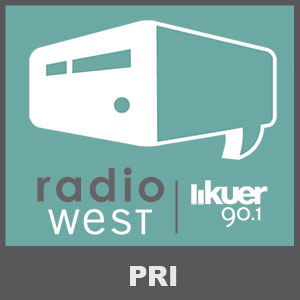 |
| kuer.org/radiowest |
I found the episode to be engaging and useful as I embark on the novel myself -- among other points, Philbrick reminded me that being too focused on the plot is a potentially hazardous distraction to appreciating the meandering genius of the novel.
It may be a bit old-fashioned now to call podcasting a new media (actually does the term "new media" sounds a little dated too, now?), but it's a format that is worth considering, that has certainly not lost its usefulness or significance, and that I would heartily recommend, as Philbrick does of Moby Dick, to everyone who has not been introduced to it.
Podcasts are made by amateur hosts, celebrities acting as amateur hosts, or professional radio programs. And it doesn't end there; this year I discovered Decode DC, a podcast made by someone who used to be a professional radio host but who dove right into the podcasting seas, taking her expertise into the realm of podcasts, instead of the other way around.
WNYC's Radiolab is a weekly radio program distributed on public radio, but all of their new hours launch first on their podcast feed, something I did not realize until I interned with them this summer.
I became an avid listener of podcasts many years ago, and then became a podcaster myself after that, which has led me, sometimes accidentally, to meaningful professional opportunities. I have written in the past about how I podcast, but I would be happy to write more. So -- how do you engage with podcasts, both as a consumer or a creator? I'd love to generate a conversation about the format, and to share whatever experiences or tricks of my own that would be useful.
This is an interesting look at podcasts. I actually haven't ever really seen or heard many of them, but I think it is a good way to stay connected academically with other people who are coming up with more ideas--like blogging!
ReplyDeleteI was listening to NPR when this interview came on and I was so excited that I instantly posted about it on google+. I was only able to catch a little bit of the interview because I was in and out of my car running errands, so I am excited to go back and listen to the whole thing.
ReplyDeletePodcasts are such a great way to learn new information and get some interesting insights. I've found that the best way for me to get my news is to turn on a podcast in the morning while I get ready. It was also a life saver for me when I was working at an office doing data entry and needed something to keep me amused. Rather than just listening to music the whole day I was learning interesting and useful information.
There are so many podcasts available for people to listen on such a wide variety of topics. It really is a great and most importantly very accessible platform for people to share and consume.
Hey, Why Read Moby-Dick is on sale at the bookstore..for like eighty dollars.
ReplyDeleteI am not a huge podcast listener but I have always been meaning to explore them a little more. Coincidentally I do know radiowest, it is very good. Doug Fabreezio is great. The variety of things talked about is what I like. And I agree with Danielle in that it can be a very good substitute for listening to music nonstop while on a long commute or in the office.
ReplyDelete